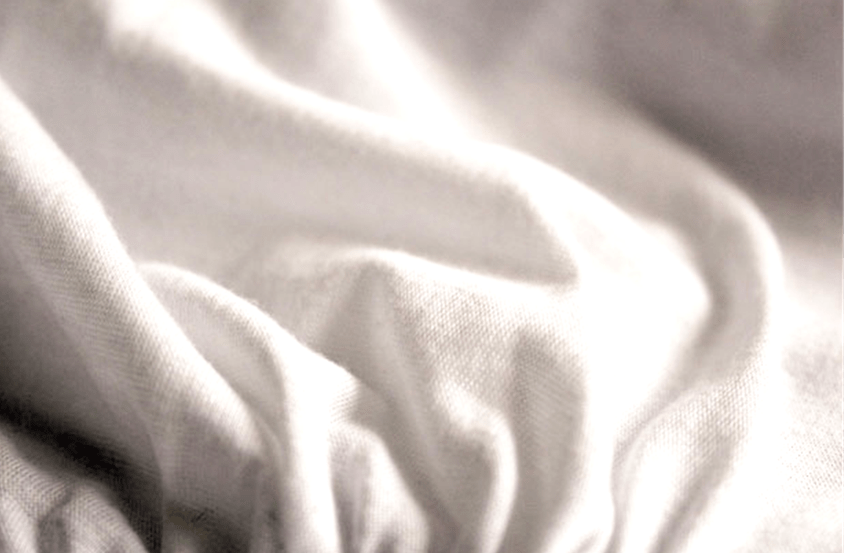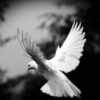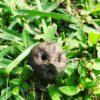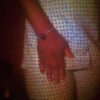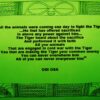Oba tí kìí kú, Oba tí kìí rùn, Oba tí kìí tòògbé, Oba tí kìí sùn.
The King that does not die
The King that is never sick
The King that is never sleepy
The King that does not sleep
He is The King who wears immaculate clothing, pure and white, also known as Orisa Nla, Olufon and many others. Orisa Nla always represents the essence of Yoruba ritual and purity, ethical purity and the ideal of high character and morals.
Children/omo of Orisa Nla are known for being mature beyond their years, sober, deep thinkers and with very high standards of conduct. Followers of Obatala take an oath to not lie, and conduct themselves with a very high moral standard. It is very rare to find a child of Obatala behaving badly.
Obatala, as he is usually called in the diaspora, and Olodumare, the Supreme Creator, are linked together, with Obatala seen as the symbol for or linked to Olodumare. Some praises of Olodumare describe Obatala as a King on Earth. It is through Obatala that one can reach God.
The whiteness associated with Obatala symbolizes purity and his praise names reflect his sacred and pure character:
Osun ninu ala, oji ninu ala, otun fi ala bora: One who sleeps in white, awakens in white, and who covers himself completely in white.
Aterere kaye: The one who spreads over the whole of earth.
Alagbawi niwaju Edumare: A greatly honored petitioner and advocate who stands before Olodumare.
Alamo rere: The one who works with special clay ( used to mold man).
Olodumare gave to Obatala the right to create the body of man,. When he finishes working in clay to create man, Olodumare then breathes the life force principle into the body. He was given the power to create man as he chooses, in all shapes, colors and sizes. People who are crippled in the leg, arm hand, hunchbacked or, especially if albino, are regarded as receiving a the special mark of Obatala and are seen as special to him.
Orisa Nla devotees use white clothes and necklaces of bright metal or lead. Though they are free to use other colors of clothing, it is white which brings them into alignment with the vibration of Obatala. They use a gong to awaken him as they chant the special praise names. They must not take strong drink and must not use any substance which will alter their perception of reality or make them lose their senses.
The temple of Obatala is painted white inside and out, and the staff of Obatala is white and the beads worn by devotees are white. The shrine water is changed every day if possible, from pure water taken very early in the morning from a stream by a virgin or an older woman who is no longer sexually active and with upstanding character.
Many praise names and songs show Obatala’s talent:
Eni soju se’mu: He who makes eyes, he who makes noses.
Ada ni bo ti ri: He who creates as he pleases.
Adimula: The one who holds all the good things of life.
Orisa Nla can be appeased with kola nut, shea butter, orogbo, corn meal, white gin, clean water, pigeon, snail, white beads and cloth, efun chalk, mashed yam, guinea fowl, he and she goat but he MUST NEVER, EVER BE FED PALM OIL.
© 2016 by Farin da Silva, All Rights Reserved. Pursuant to the Copyright Act of 1976 and subsequent amendments, codified as 17 U.S.C. §§ 101-810, the works contained within are protected by United States laws and by international treaties. This includes the literary and pictorial works created by Farin da Silva contained herein, as well as any other original works of authorship fixed in any tangible medium of expression. The unauthorized copying, distributing, displaying, or production of derivative works is strictly prohibited by Farin da Silva. Copyright infringement may subject you to civil liability of a minimum of $750 per infringement for statutory damages, as well as the costs incurred to enforce these rights. 17 U.S.C. § 504. A court may award up to $150,000 per infringement. This copyright holder takes copyright infringement seriously and does enforce their rights.
